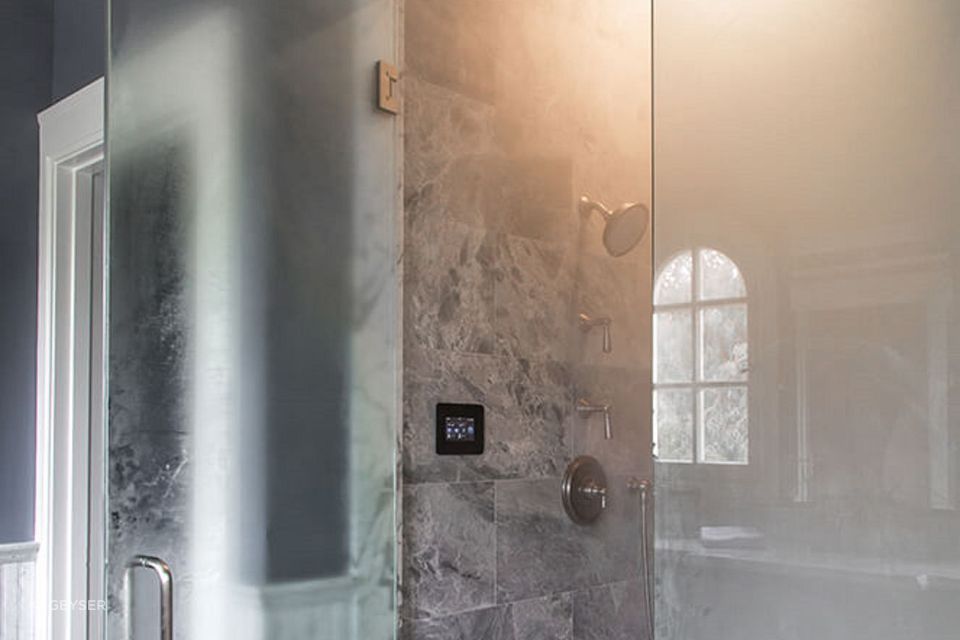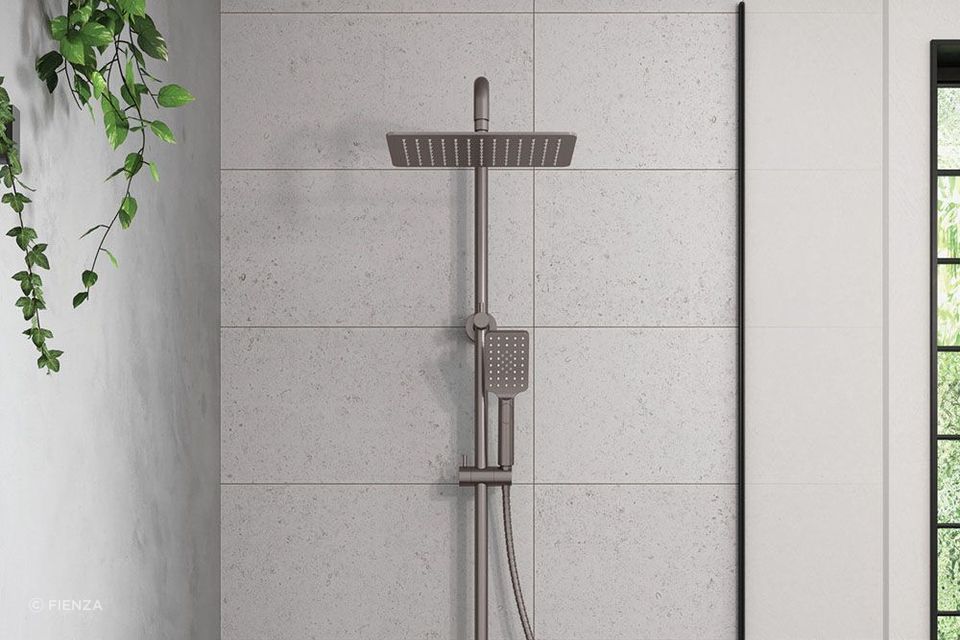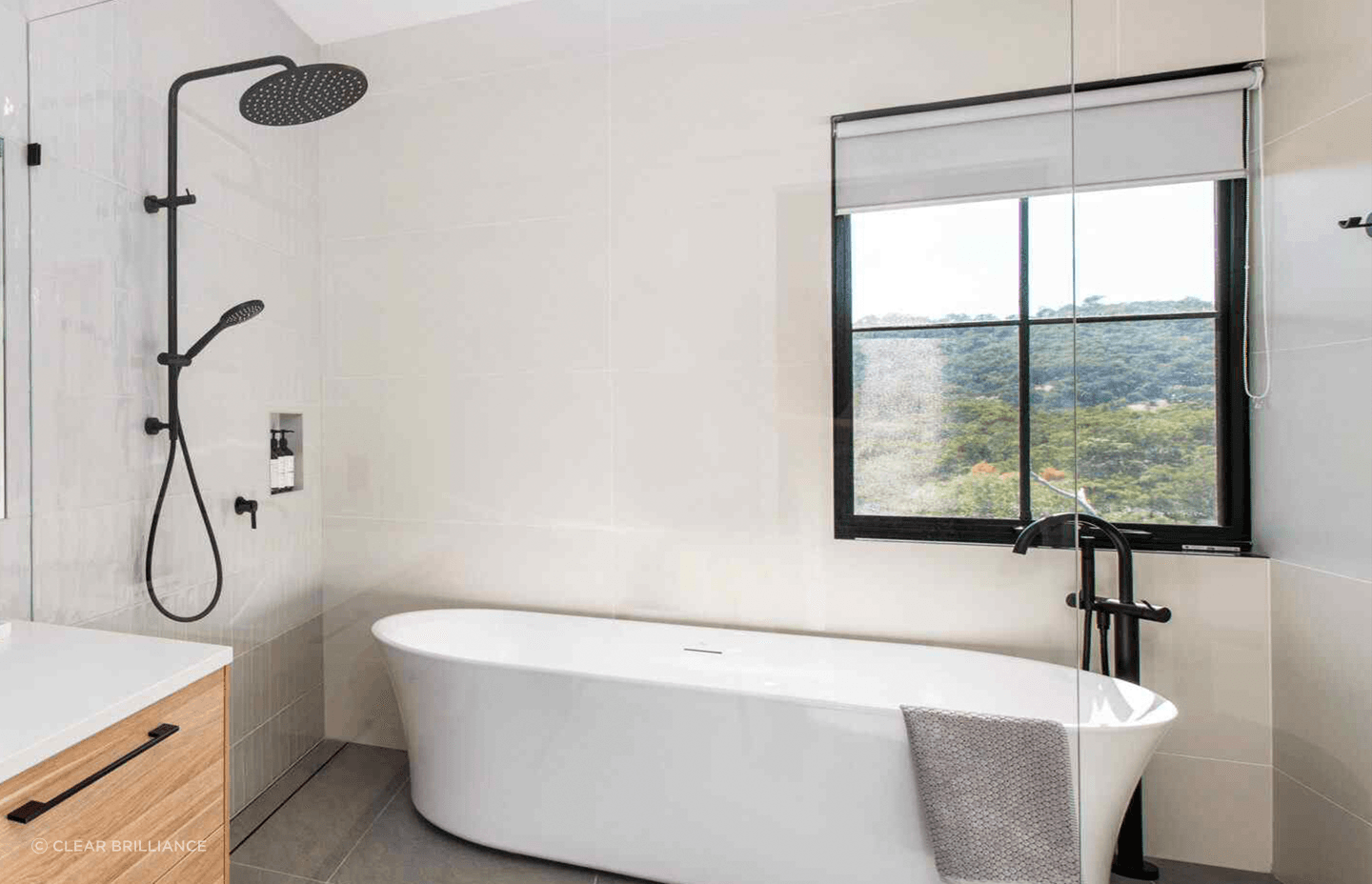How much does it cost to replace a shower in Australia in 2024?

If you're looking to replace a shower in your home as a standalone project or as part of a more comprehensive bathroom renovation, it's important to understand what it will cost you. In this guide, we'll cover the average cost of replacing a shower, what contributes to this cost, and other factors you should consider.
What is the average cost to replace a shower?
The average cost to replace a shower in Australia sits at:
- $200 - $3,000 for a basic shower unit (excluding labour and installation costs).
- $3,000 - $5,000 for a mid-range shower unit replacement (excluding labour and installation costs).
- $5,000+ for a high-end shower unit (excluding labour and installation costs).
(Note: the typical shower replacement job can be defined as the process of removing an existing shower unit and installing a new one in its place).
What contributes to the cost of replacing a shower?
There are a few important factors that contribute to the cost of replacing or installing a new shower, these are:
- The type of shower you're replacing and the type you're replacing it with
- The materials used for components of the shower, including the shower base, walls and doors
- The size of the shower (larger showers tend to cost more to replace than smaller showers)
- The cost of labour involved, such as plumbing and installation costs.
Let's explore these factors in more detail.
Type of shower
The type and complexity of the shower you're installing can significantly impact the cost. Basic shower types include stand-alone showers and shower-tub combinations, with varying features such as multi-jet systems, steam functions, or digital controls that can add to the cost. Luxury showers with advanced features like rainfall showerheads, body sprays, and steam generators are on the higher end of the price spectrum.
Materials used
The materials chosen for the shower components — the base, walls, doors, and fixtures — also play a critical role in the final cost. Common materials for the shower base and walls include acrylic, fibreglass, ceramic, porcelain tile, and stone. Acrylic and fibreglass are generally more cost-effective, while tile and stone are more expensive but offer a higher end look and more customisation options. Glass doors can vary in price based on the thickness and treatment of the glass.
Size of the shower
The size of the shower directly influences the cost of materials and the amount of labour required. Larger showers require more materials and more time to install, thus increasing the cost. This is particularly true for a custom tiled shower, where the cost can increase significantly with size.
Cost of labour
Labour costs can vary widely depending on your location, the complexity of the job, and the type of professionals required. A full shower replacement involves not just plumbers but also potentially electricians (for advanced electrical features), tile setters, and general contractors. The rate for labor can be charged by the hour or by the project. Complex installations, modifications to existing plumbing, and custom work will generally require more labour and expertise, driving up the cost.
Type of shower
The type and complexity of the shower you're installing can significantly impact the cost. Basic shower types include stand-alone showers and shower-tub combinations, with varying features such as multi-jet systems, steam functions, or digital controls that can add to the cost. Luxury showers with advanced features like rainfall showerheads, body sprays, and steam generators are on the higher end of the price spectrum. Here's rough pricing for different types of showers:
Prefabricated shower stalls
Prefabricated showers, sometimes referred to as a prefab shower kit can range in price from around $200 - $2000+ The lower end covers basic models, while the higher end includes larger or more stylised versions.
Tiled showers
These are custom-built showers that are tiled on-site. They offer limitless design options and can be tailored to fit different shower spaces. Prices can range: $1,000 to $5,000+ for materials and labour. Costs can go higher depending on tile choice, size, and complexity of the design.
Shower-tub combos
These combine a bathtub with a shower, typically using a curtain or glass door to prevent water spillage. They're practical for bathrooms serving multiple purposes. Prices range from $500 to $3,000+. Acrylic and fiberglass combos are more affordable, while cast iron or cultured marble versions are at the higher end.
Walk-in showers (barrier-free)
These showers have no curb and allow easy entry, making them ideal for universal design. They often feature glass panels and larger dimensions. Prices for these showers can range from $1,500 to $5,000+. Costs increase with custom glass work, tile, and size.
Steam showers
Steam showers are enclosed units that also function as steam rooms, equipped with a steam generator and waterproof sealing. Prices can range from $2,500 to $10,000+. The price includes the cost of the steam generator, additional waterproofing, and potentially custom features.
Luxury showers
These showers include high-end materials, multiple showerheads, seating, digital controls, and other luxury features. Prices range from $5,000 to $15,000+. Costs can escalate with the inclusion of features like body sprays, high-quality materials, and custom designs.

Other factors impacting the cost of shower replacement
Materials used
The materials chosen for the shower components — the base, walls, doors, and fixtures — also play a critical role in the final cost. Common materials for the shower base and walls include acrylic, fibreglass, ceramic, porcelain tile, and stone. Acrylic and fibreglass are generally more cost-effective, while tile and stone are more expensive but offer a higher end look and more customisation options. Glass doors can vary in price based on the thickness and treatment of the glass.
Size of the shower
The size of the shower directly influences the cost of materials and the amount of labour required. Larger showers require more materials and more time to install, thus increasing the cost. This is particularly true for a custom tiled shower, where the cost can increase significantly with size.
Cost of labour
Labour costs can vary widely depending on your location, the complexity of the job, and the type of professionals required. A full shower replacement involves not just plumbers but also potentially electricians (for advanced electrical features), tile setters, and general contractors. The rate for labour can be charged by the hour or by the project. Complex installations, modifications to existing plumbing, and custom work will generally require more labour and expertise, driving up the cost.
Hourly rates for plumbers in Australia can range from around $100 - $150 per hour.
Features required
The total replacement cost will also come down to the features that you need replacing, or that you in addition to the new shower unit. Your project may only involve replacing certain parts of your existing shower which will bring down costs.
Here's some guideline pricing for typical shower features:
Shower screens - these can range in price from $100 - $1000. Other shower enclosure options include shower doors - you can expect to pay around $100 - $1000 for a shower screen or door.
Custom shower heads - prices range from $25 - $150+.
Shower base or pan - a new shower base or pan an range in price from $100 - $1000+ depending on the size and material.
Shelving and storage - shower storage options include caddies, such as tension poles and hanging varieties; these are usually pretty affordable and range from $15 - $100. Shower shelving is another storage option, and wall-mounted and corner varieties range in price from $10 - $150. If your project involves more extensive work, you could look at installing a shower niche into your shower's side or back wall. Shower niches are more custom, as the price depends on the size of the niche and the amount of work involved.
Related article: 8 types of shower screens in Australia: pros, cons and more
DIY vs Professional Installation
You'll have to decide whether to install a replacement shower yourself or hire a professional. The decision depends on the scope of the project. DIY installation may be suitable if you're installing a prefab shower. These showers come as complete kits designed for easier installation and can be managed by those with basic home improvement skills.
You could also consider DIY installation if the project only involves minor upgrades, such as replacing individual features such as shower doors, shower heads, or faucets. However, seeking professional expertise is highly recommended for more complex shower replacement or bathroom renovation projects, particularly if significant plumbing or structural changes are required.
Related article: Bathroom renovation costs in Australia: A full breakdown
What does the timeline for a shower replacement project look like?
Your timeline for replacing your shower will depend on how far along you are in the process. If you’re right at the start, you’ll probably spend 1-2 weeks assessing your existing shower, deciding what needs to change, choosing materials, deciding whether to consult professionals, and finalising your budget.
Once the planning phase is complete and the actual work begins, demolition of the existing shower and preparation of the site for the new installation is the first steps, usually taking 1-3 days. Next is installing the new shower and the associated fixtures; this takes around 2-5 days. After installation, you can expect the final touches, such as sealing and grouting, and general clean-up to take around 1-2 days. On average, you can expect the entire shower replacement process to take 2 - 4 weeks.
Wrapping it up
This guide should have given you an idea of what you can expect to pay to replace a shower. The total amount really comes down to the extent of the replacement and whether you're just looking to replace a shower unit or are looking into a more extensive replacement with extra features. It always pays to budget a little more than expected, so one final piece of advice is to always have around 10-15% extra as a contingency measure - you never know if you'll see something extra that you want to add, or if an unexpected issue will arise during the installation process.



